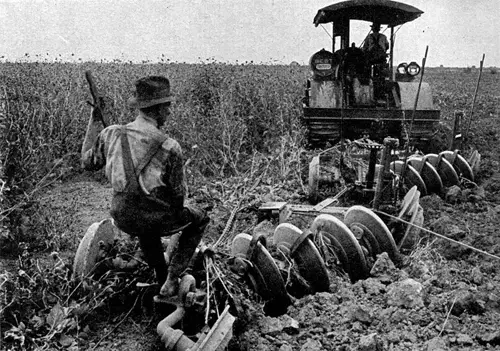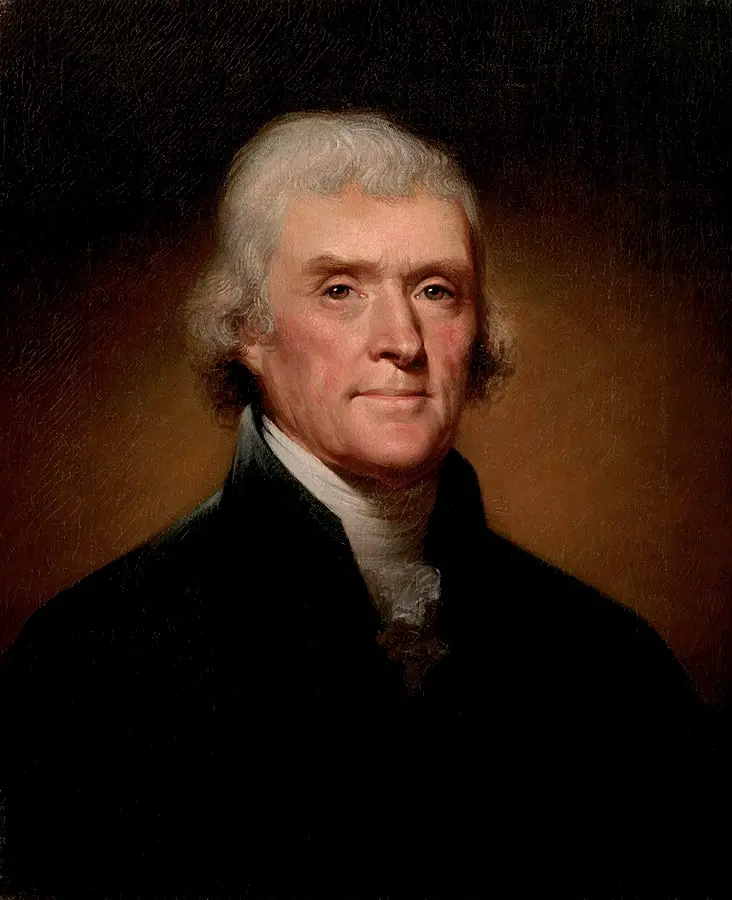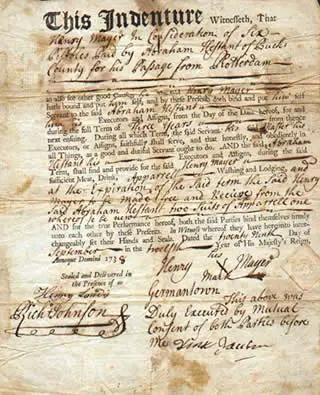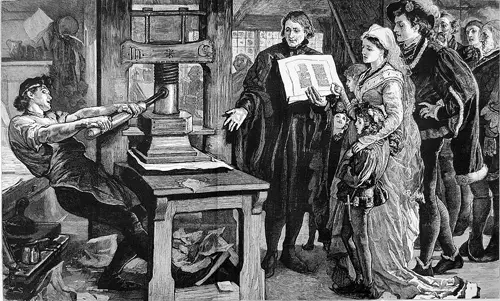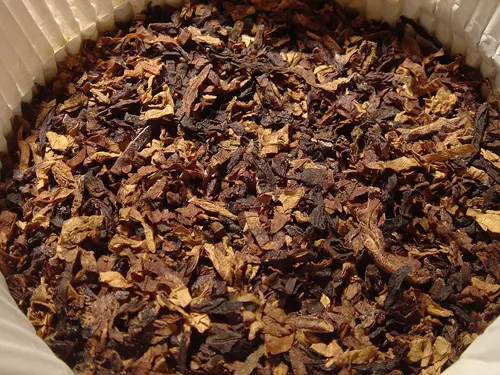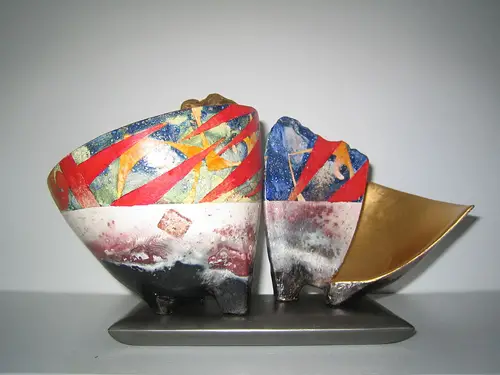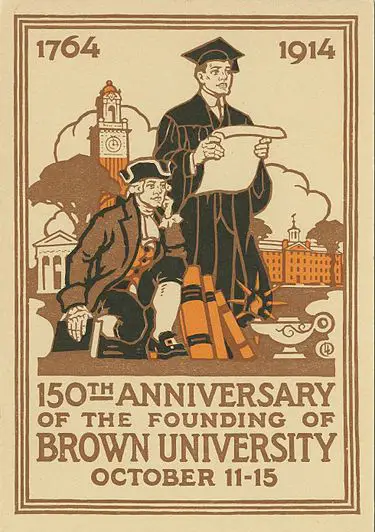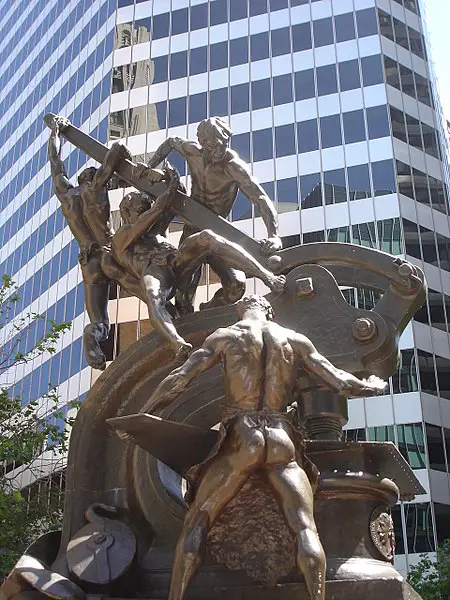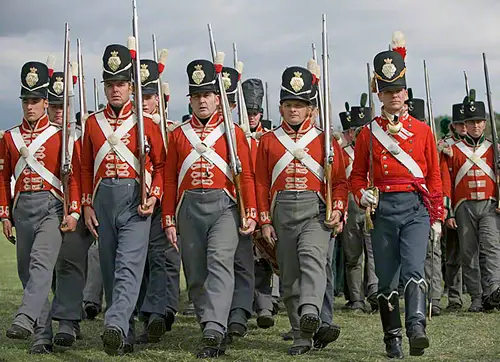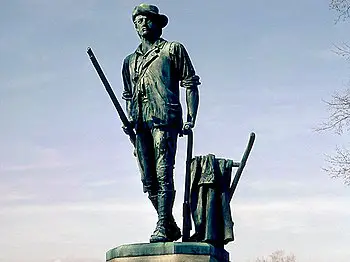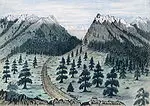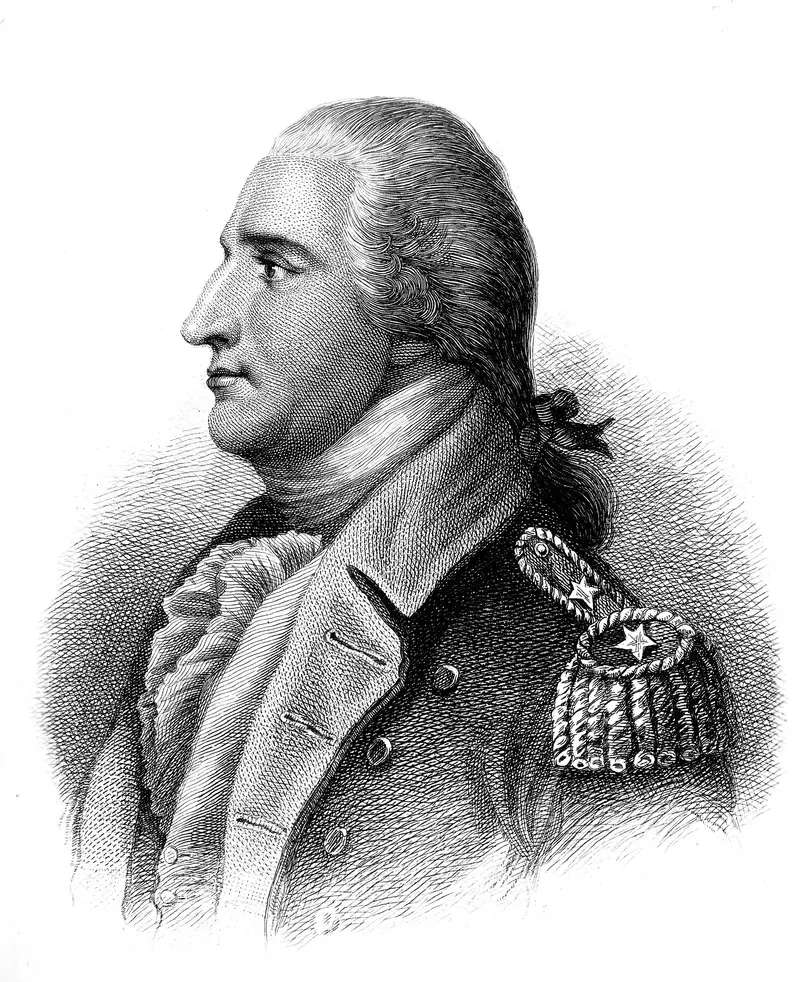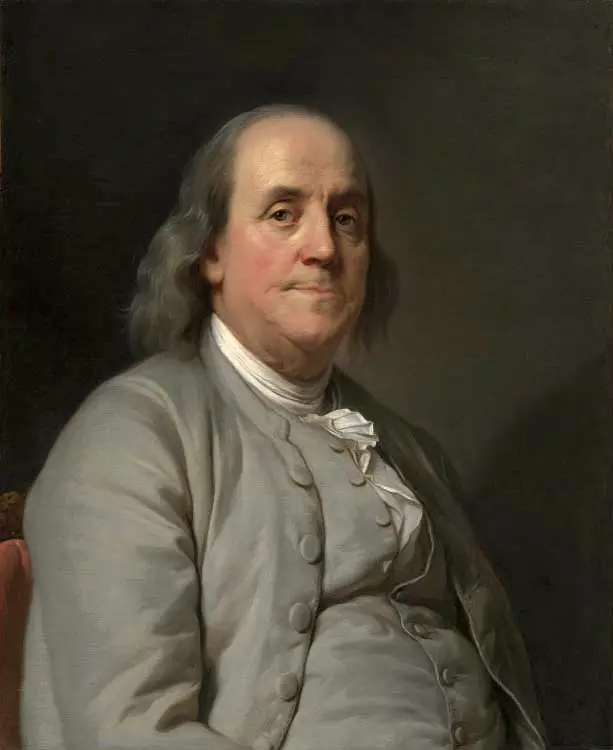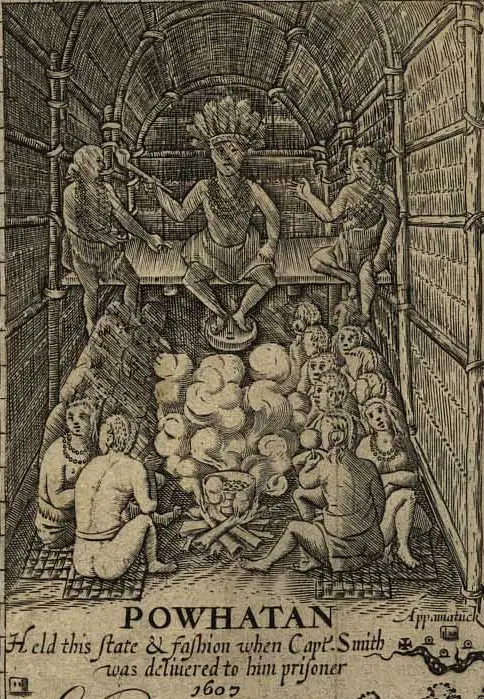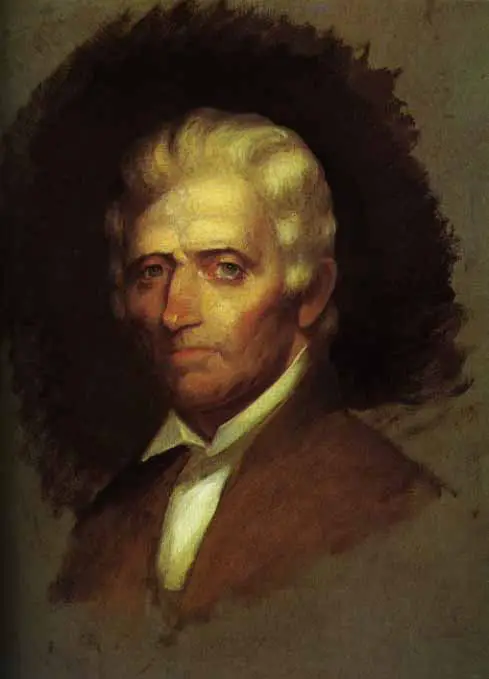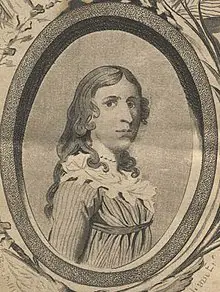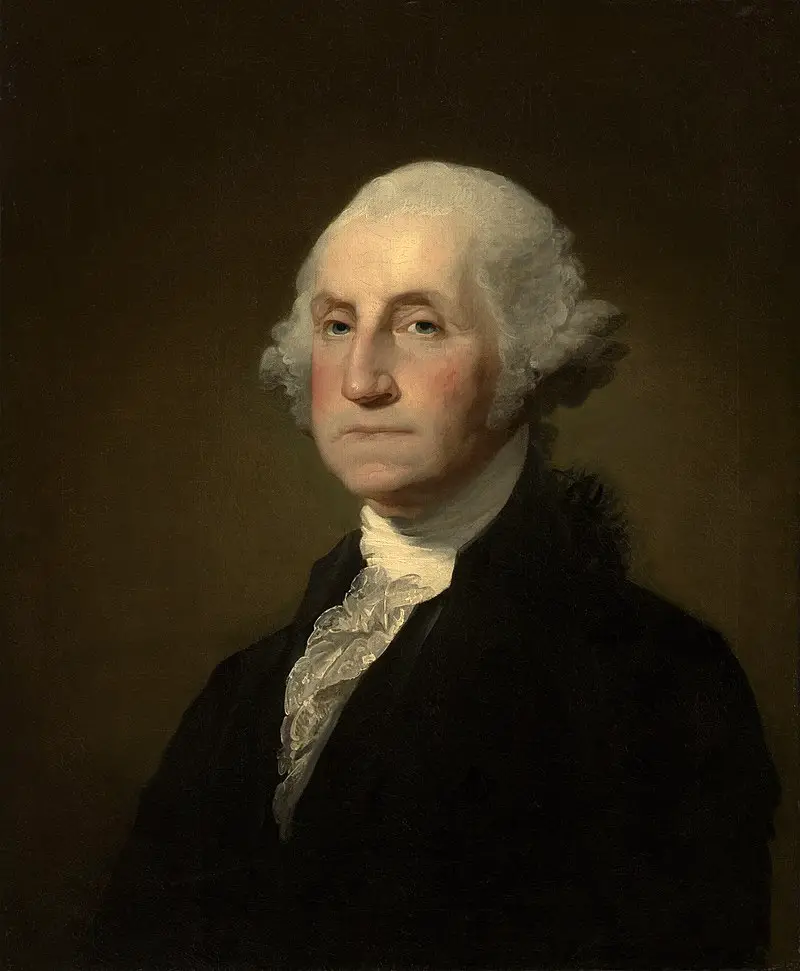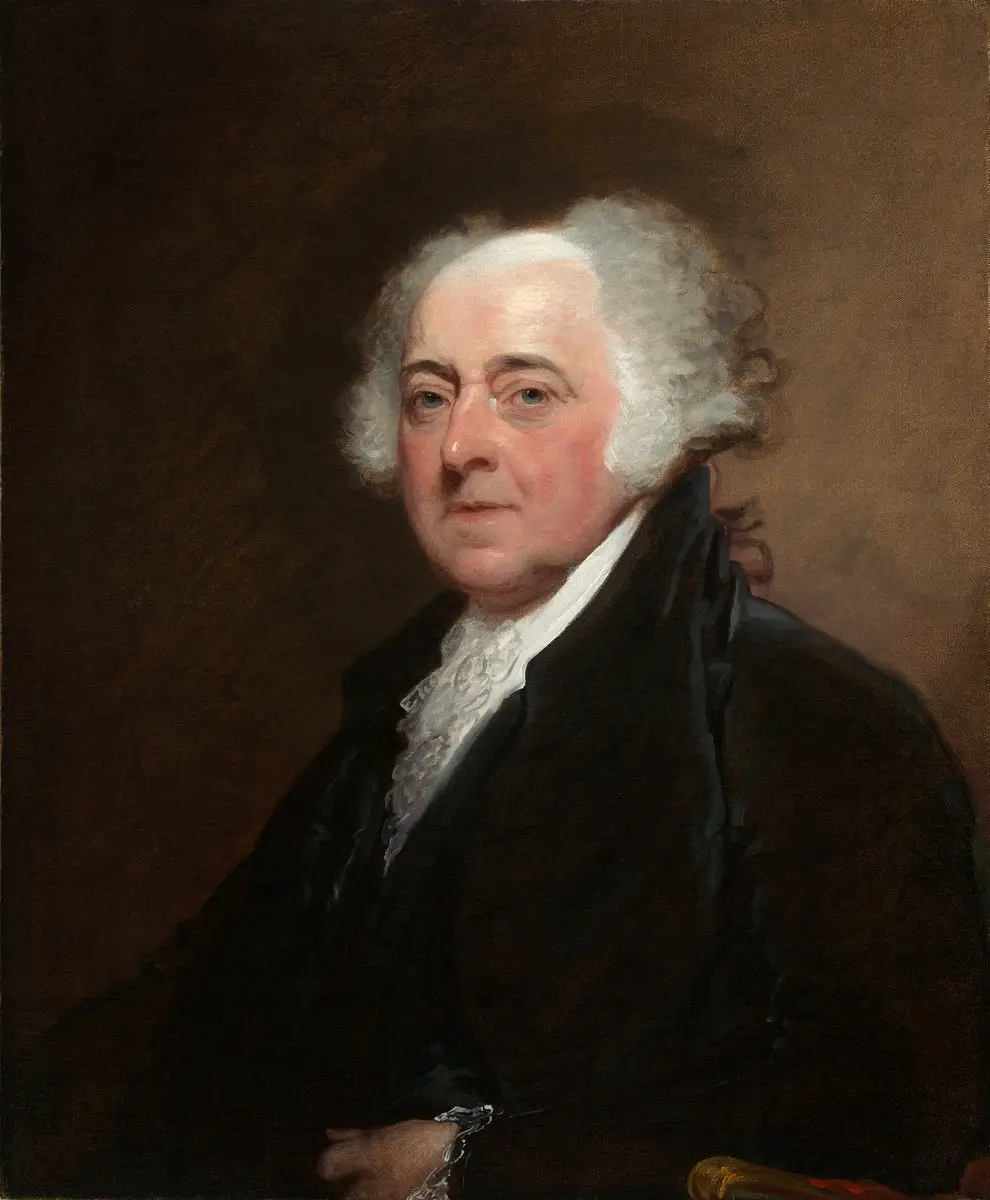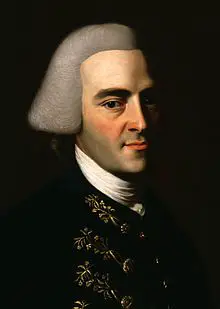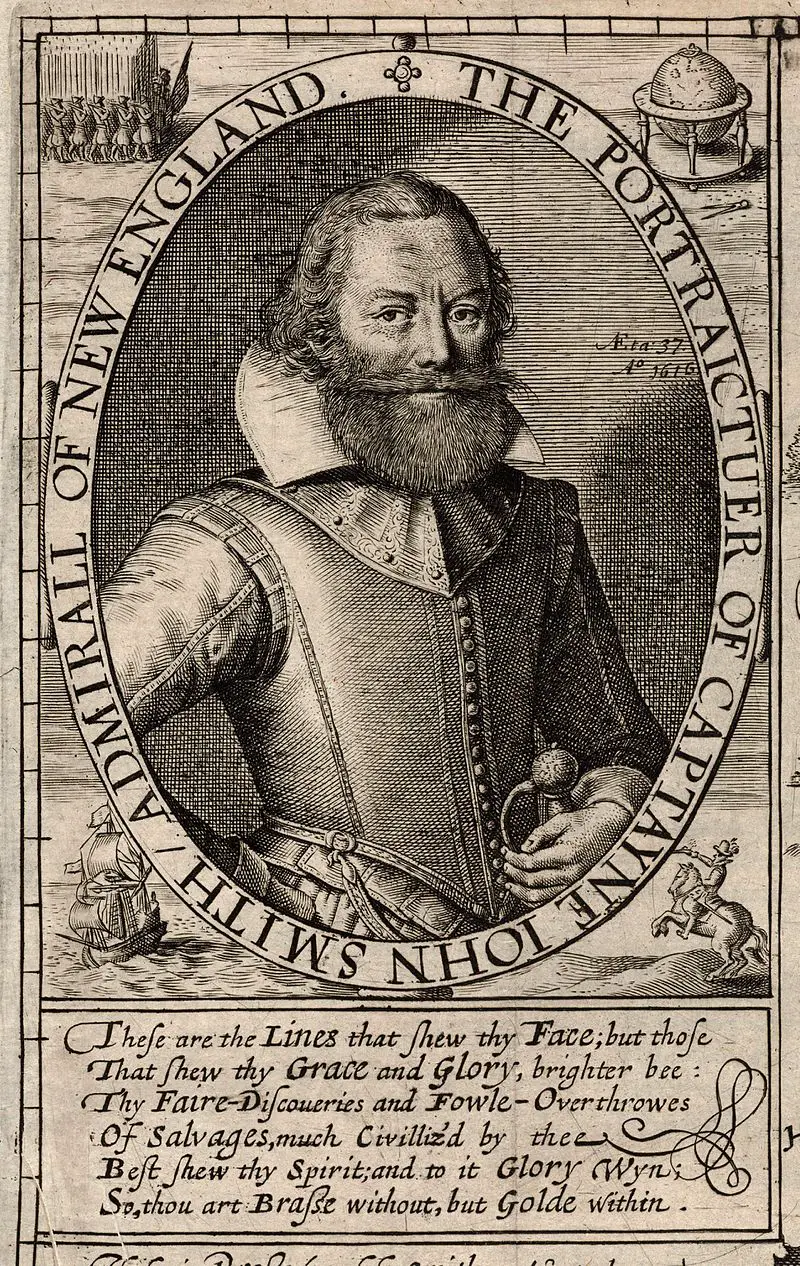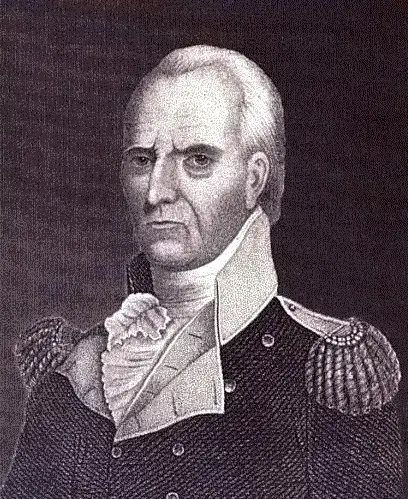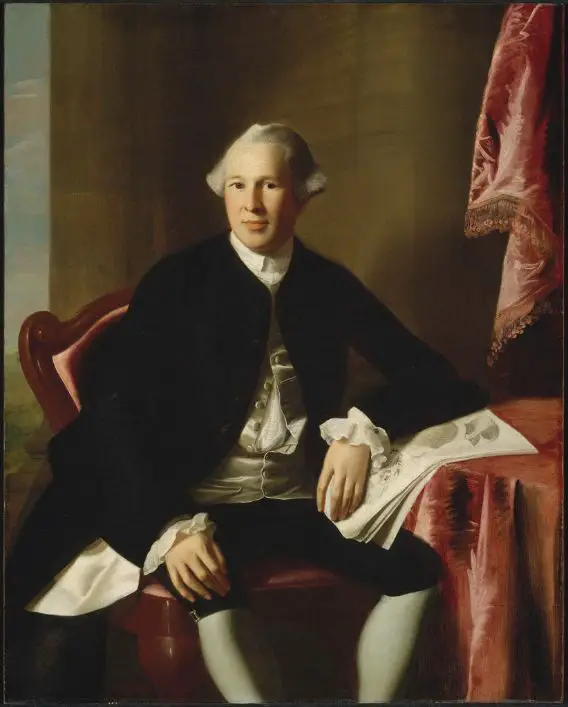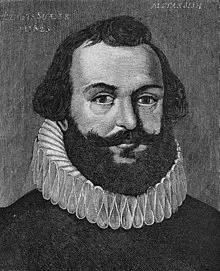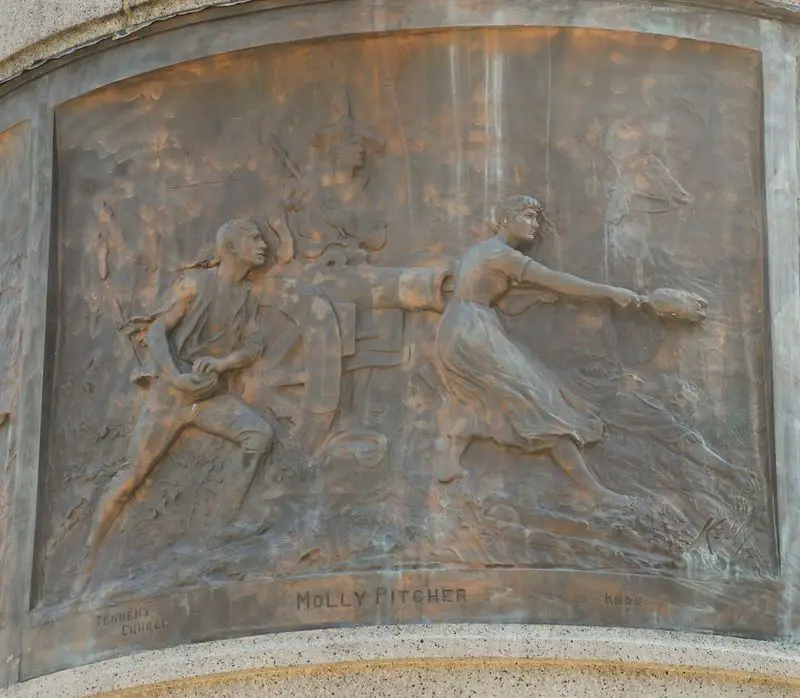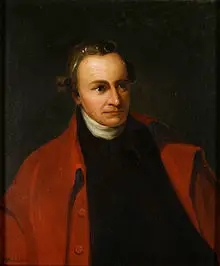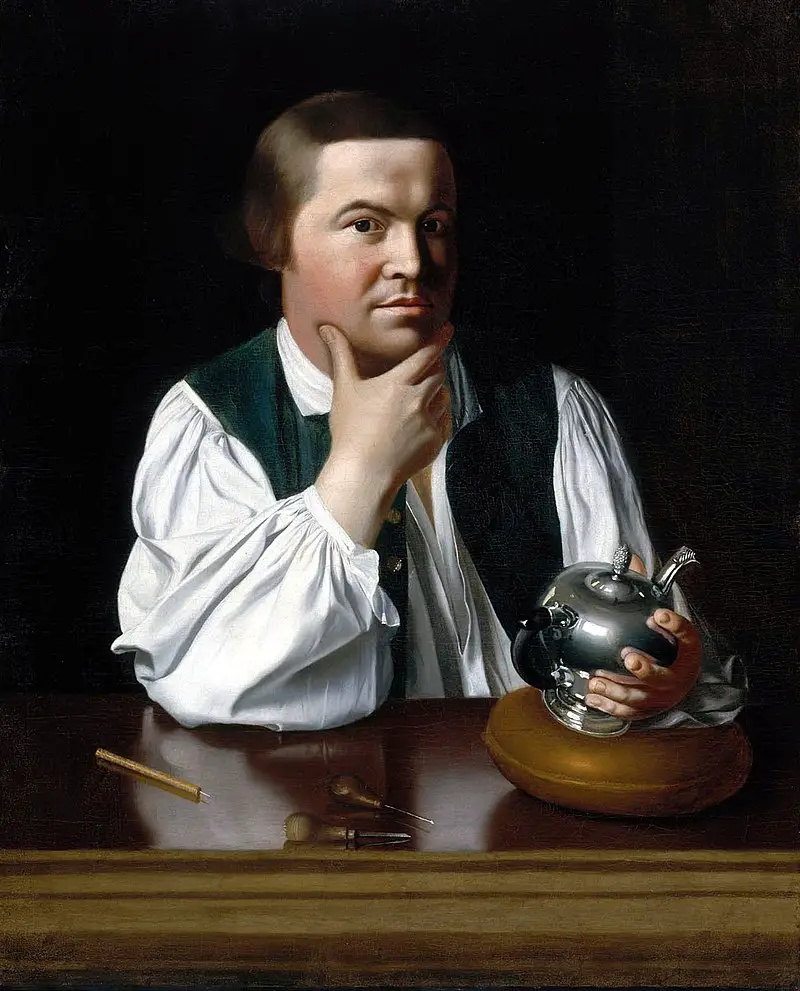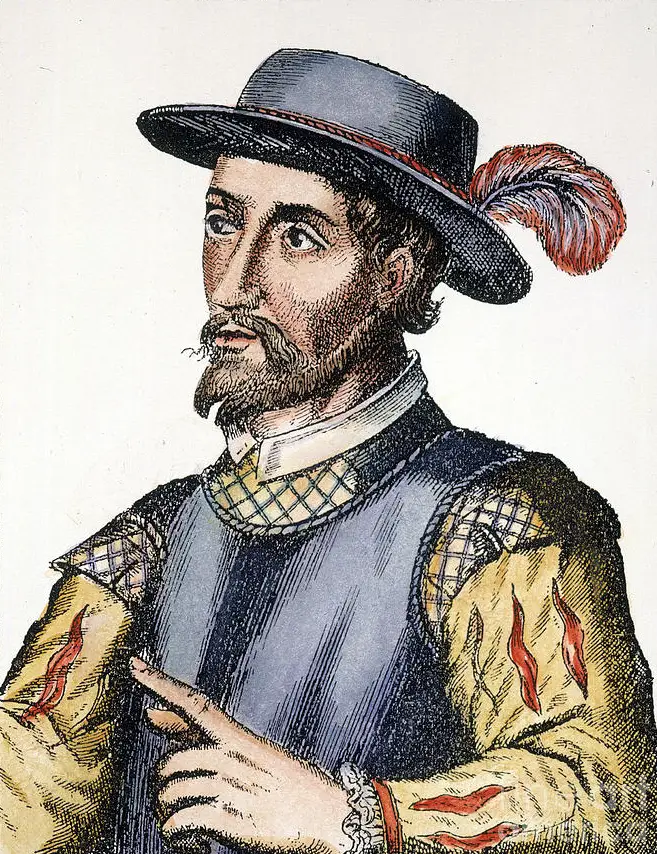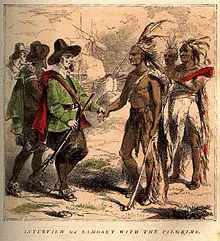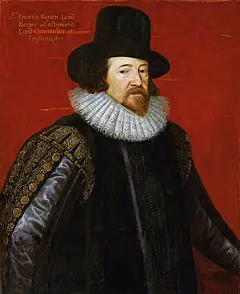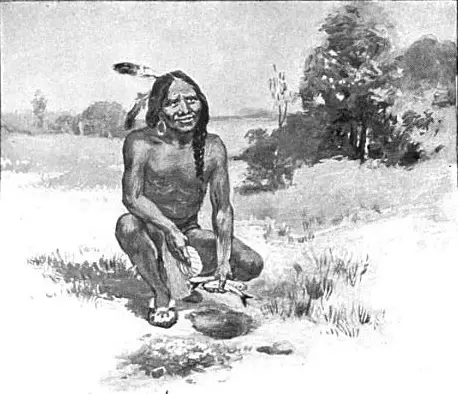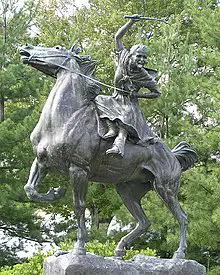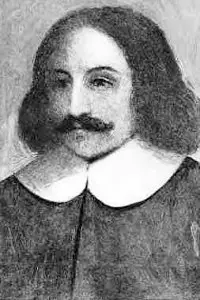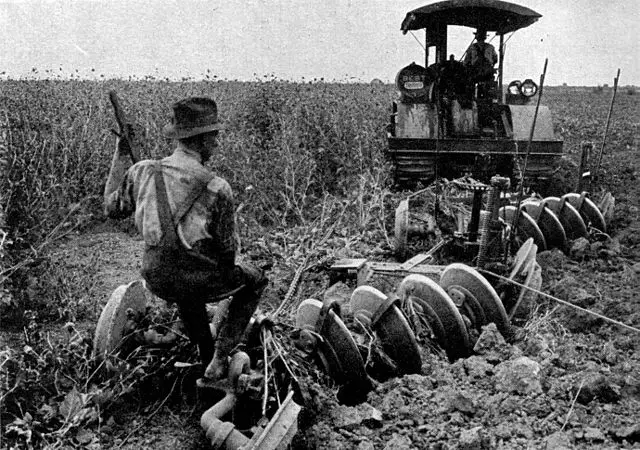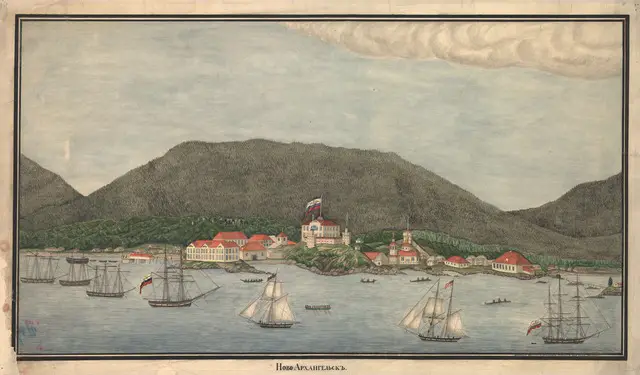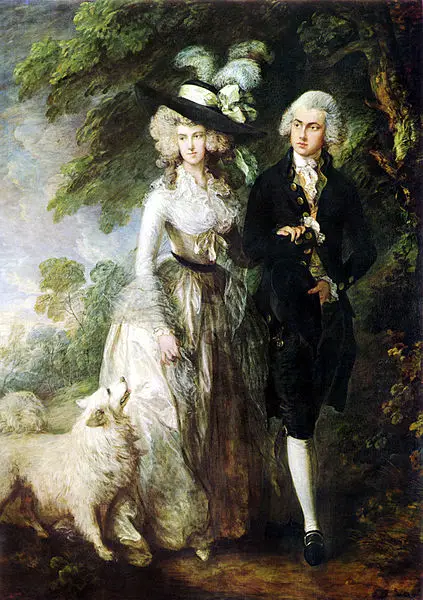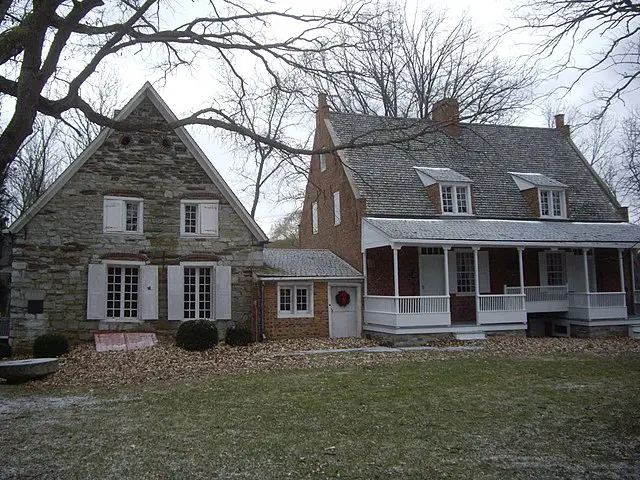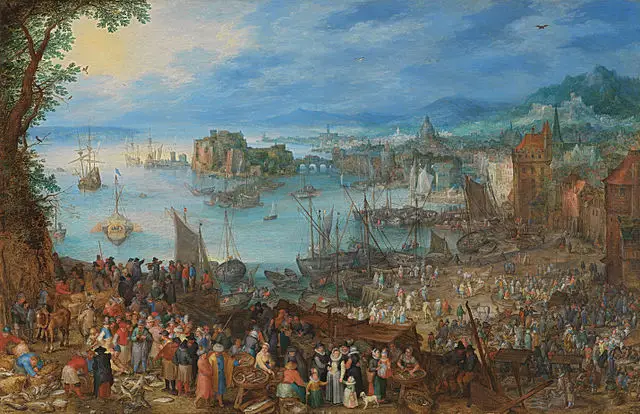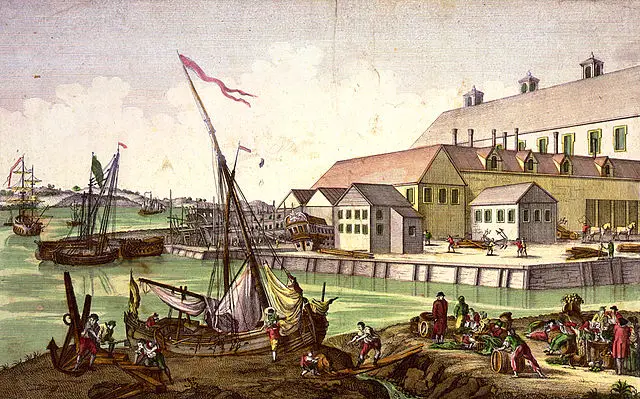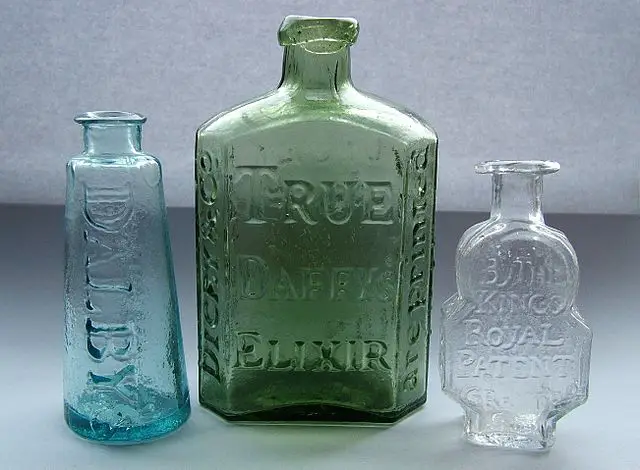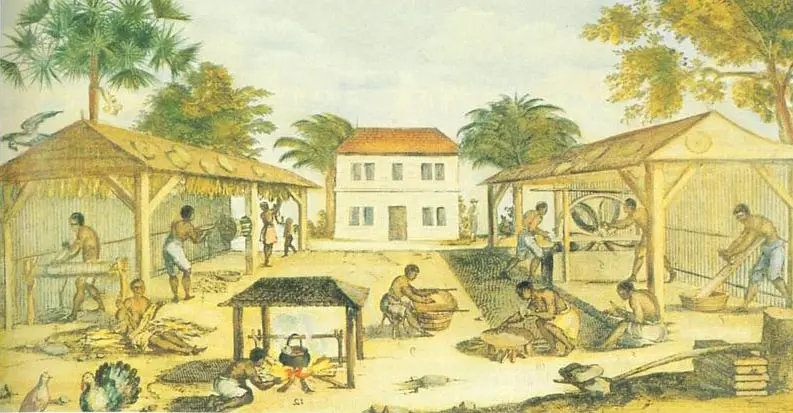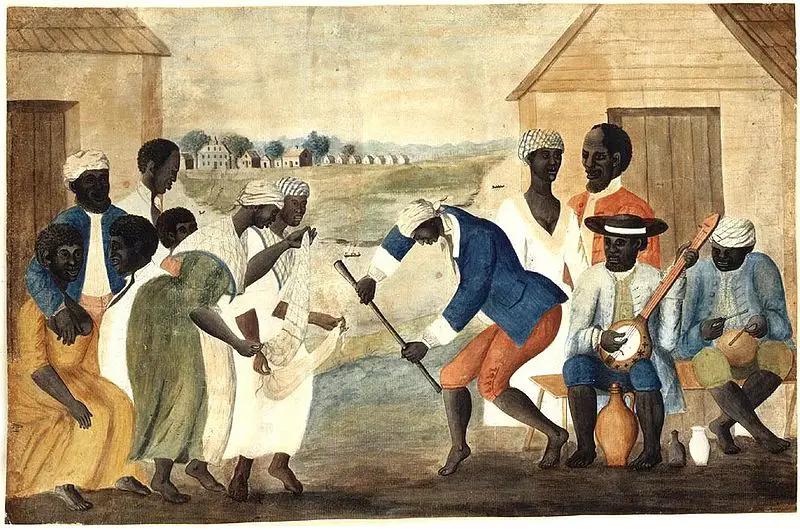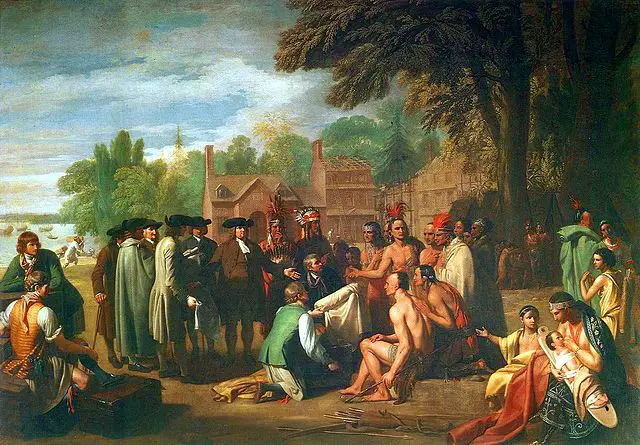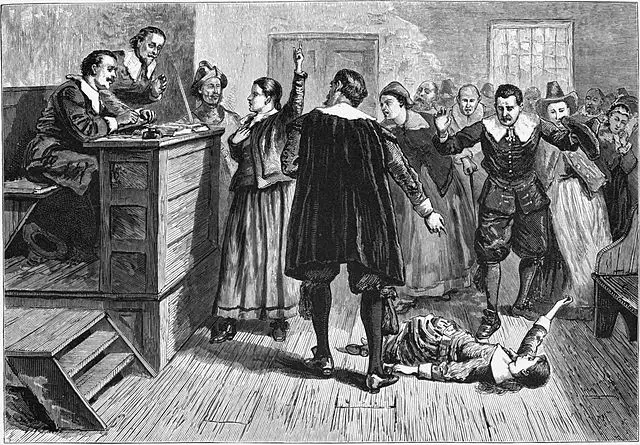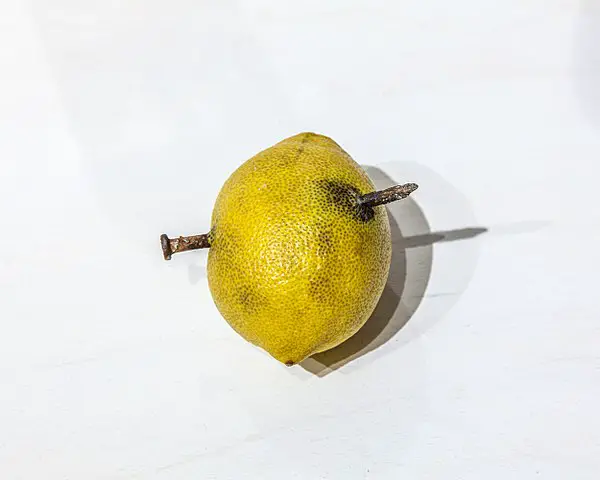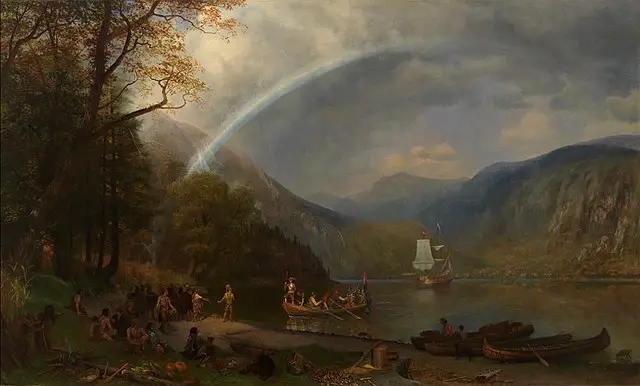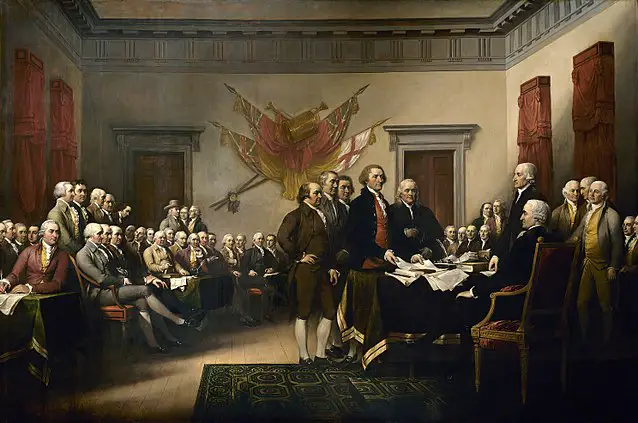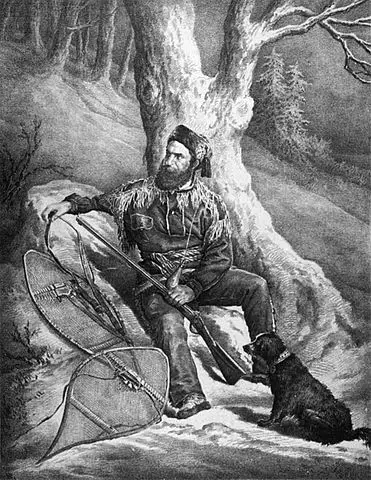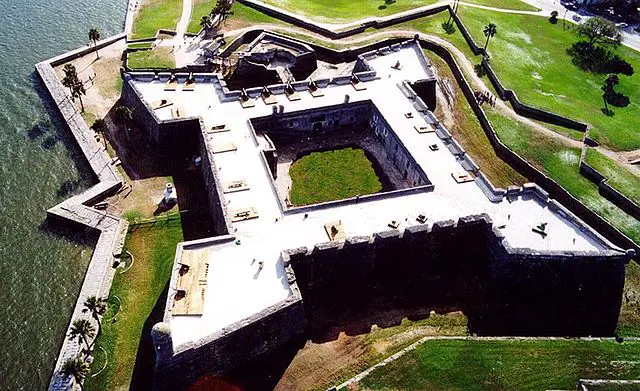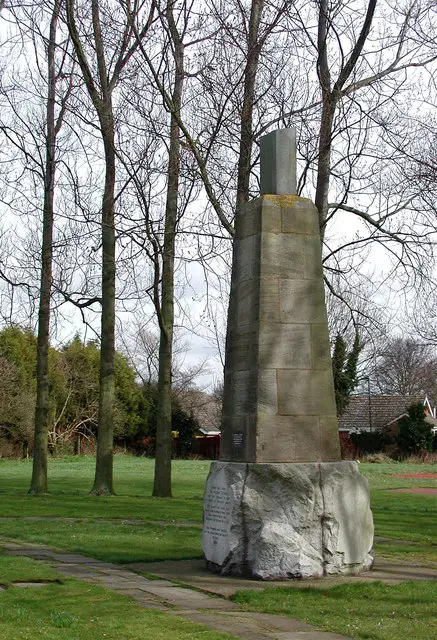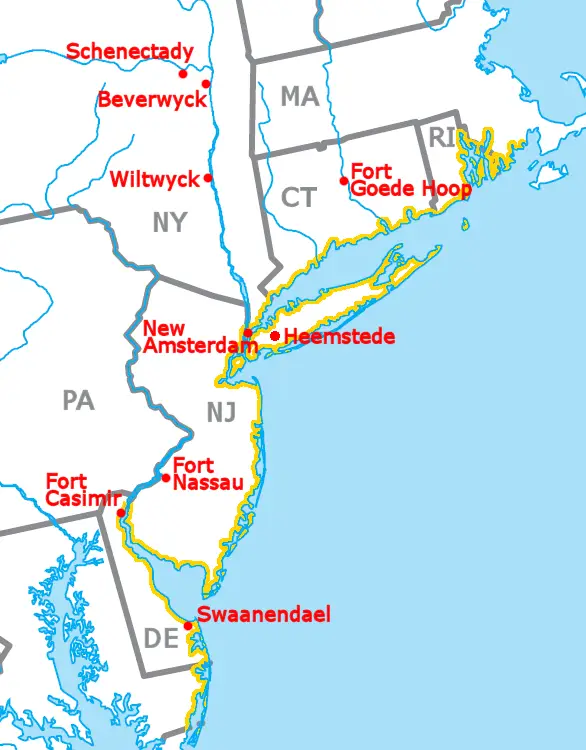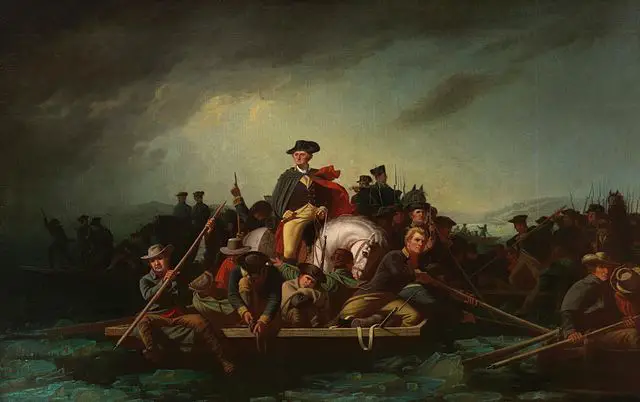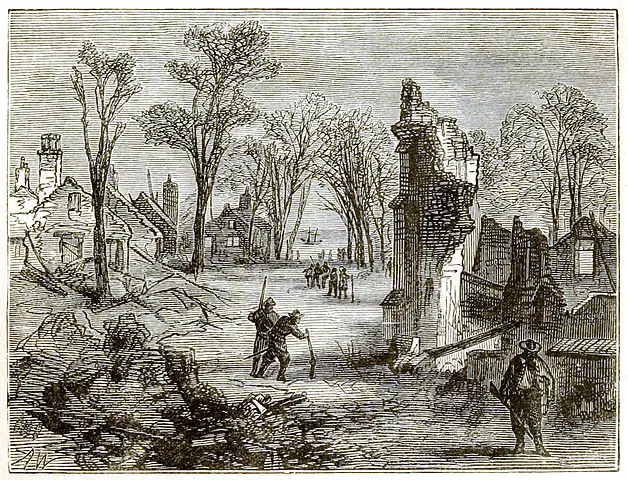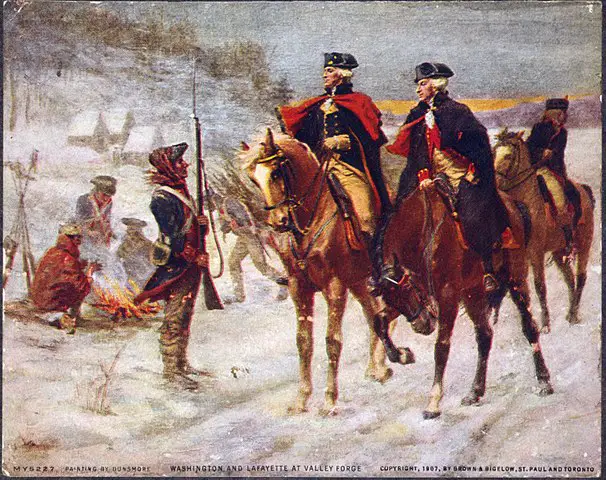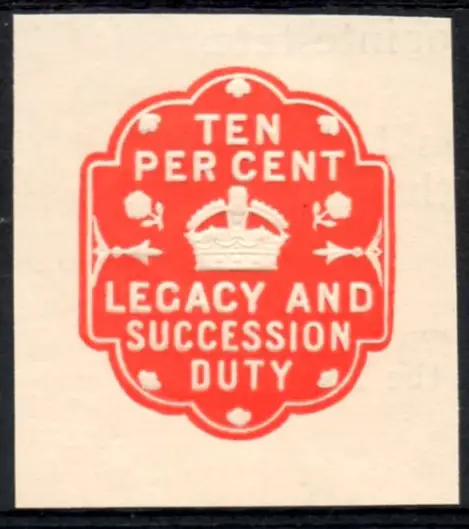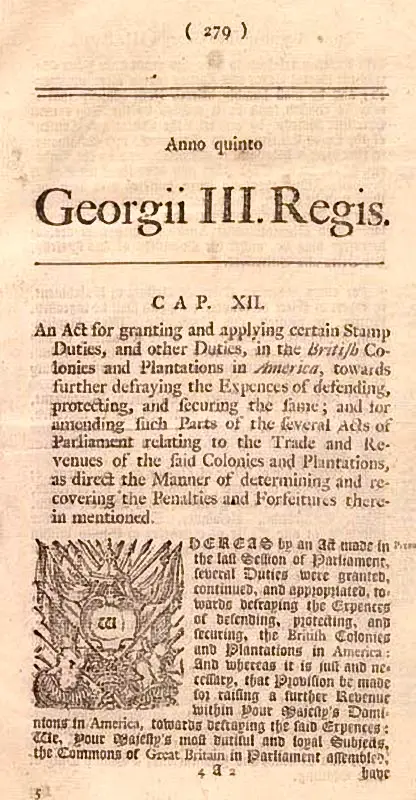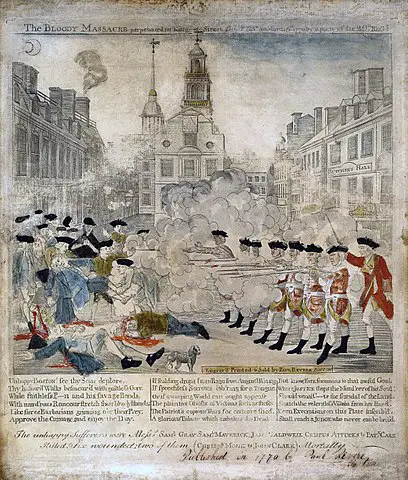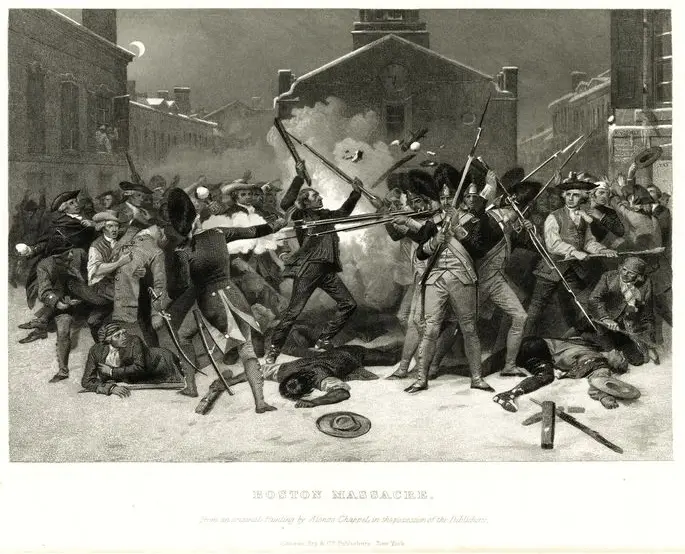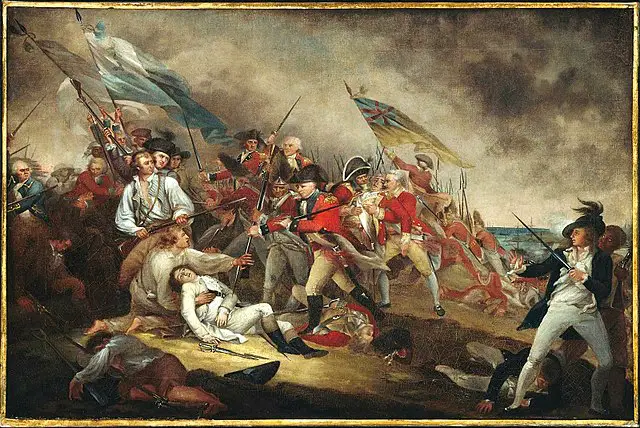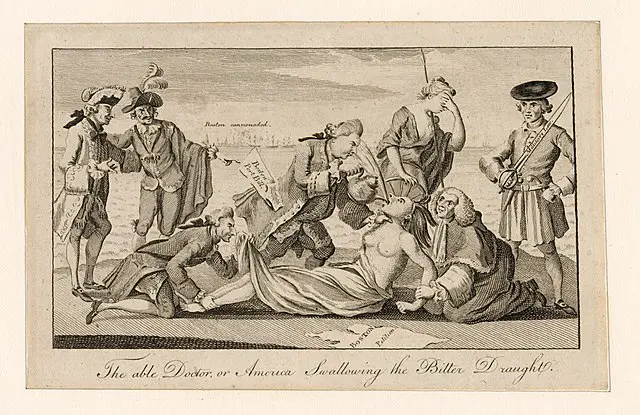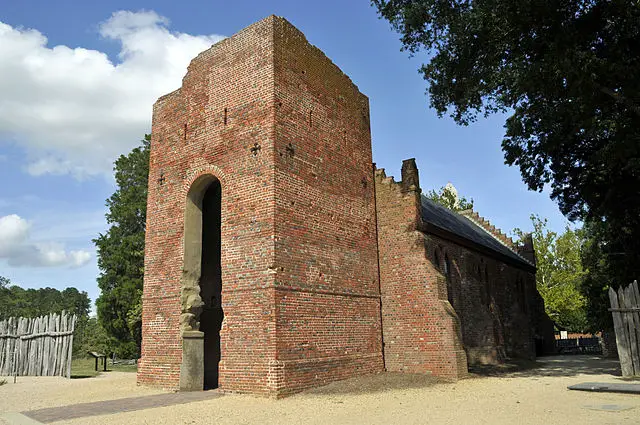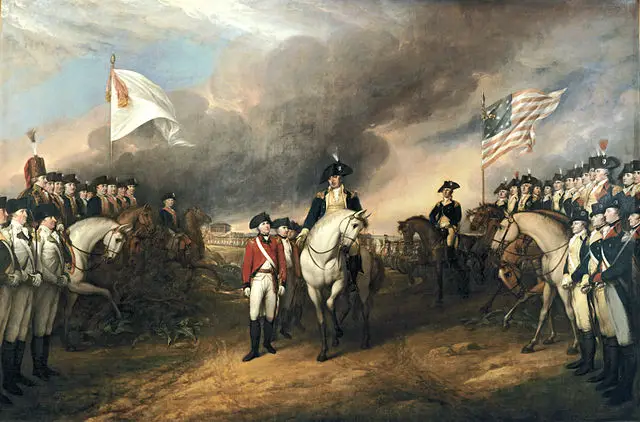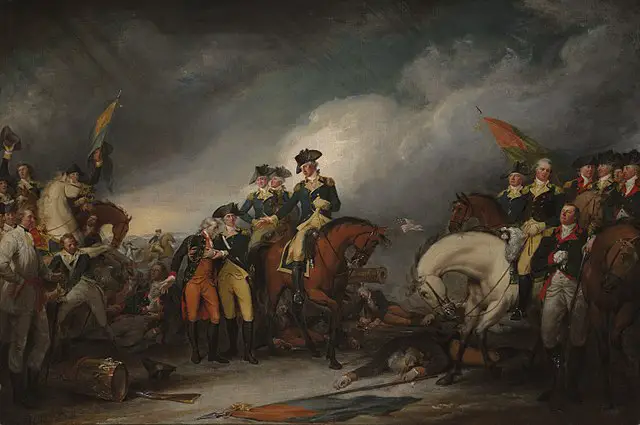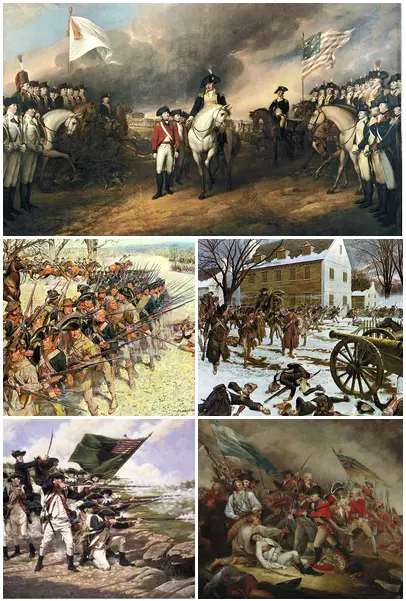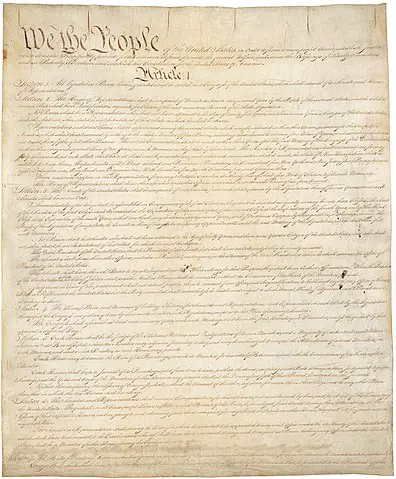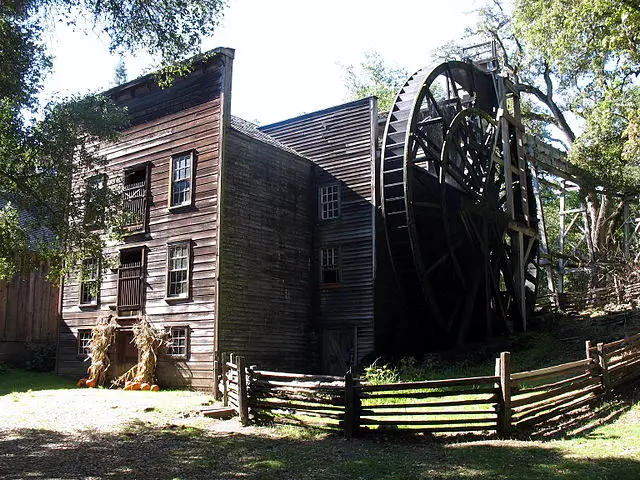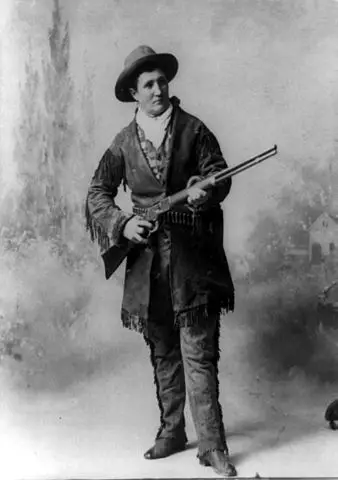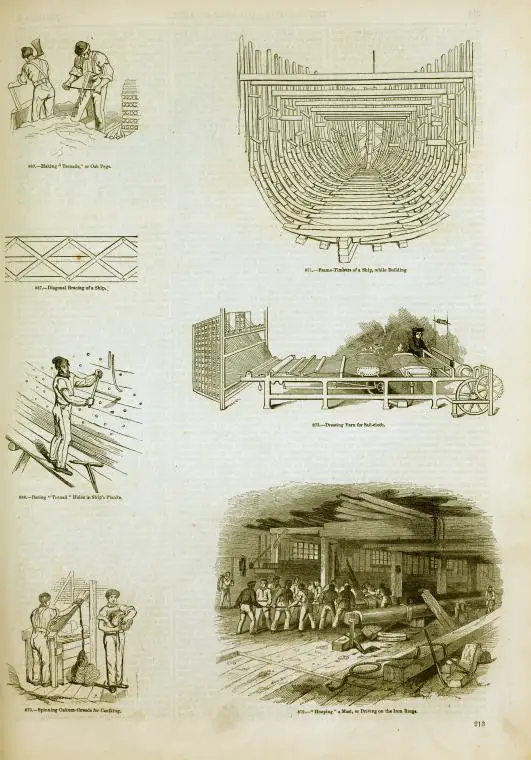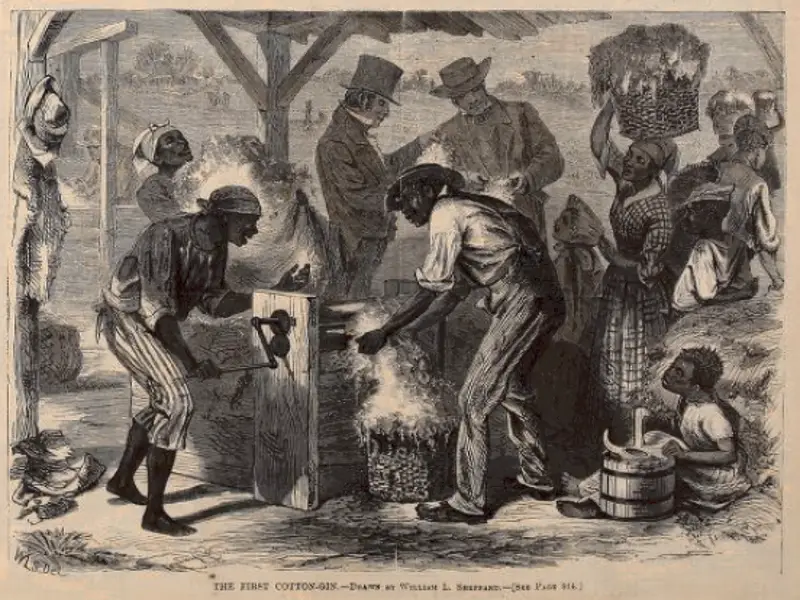Colonial America: 1600-1800
America began as colonies of England, Spain, the Netherland, and France. Learn how industry developed during this time, slavey and the tobacco industry played a big part. What did people wear? Learn about Colonial dress and farm life. The first thanksgiving happened during this time, and Native American conflicts accrued.

-
An Agricultural Economy
Many of the people that lived in Colonial America worked on a farm, and many of the people during this
Read More -
Thomas Jefferson’s Dream
Thomas Jefferson was the third president of the United States and he also was the one who wrote the Declaration of Independence.
Read More -
Servants, Slaves, and Apprentices
During the 1700’s, slavery was something that was very common with the thirteen colonies.
Read More -
Family Businesses
Families were strong during the Colonial times and there were many different businesses, many of them being family businesses.
Read More -
Printing and Publishing
People that would print during Colonial times were called printers. They would print newspapers, books, pamphlets, speeches, and other things.
Read More -
The Tobacco Industry
The economy during the Colonial times did not work out well because of gold, but it worked out because of tobacco.
Read More -
Plantation Life
A plantation is a word that is used to describe a large farm, and this was a place that colonies used to force slaves into labor.
Read More -
Crafts and Trades
Crafts and trades were very important during Colonial times. There were specific trades that the people would have,
Read More -
Colleges and Schools
Schools were different in the 17th and 18th century, and sometimes there were schools that were public
Read More -
Socioeconomic classes
When people begin to move to the Colonial America, there were a lot of people and so social classes
Read More -
Life of a Redcoat
Living life as a Redcoat was not an easy life. This was a life of a soldier who worked hard and would fight
Read More -
American Revolution
There were two main kinds of soldiers that fought in the Revolutionary War in America,
Read More -
The Overland Trail
When the pioneers traveled to the American West in the 19th century, one of the trails that
Read More -
Abigail Adams
Abigail Adams was the First Lady of the United States in 1796. Her marriage to John Adams thrust her into the spotlight of the American people.
Read More -
Benedict Arnold
Today, the name “Benedict Arnold” is associated with being a traitor. However, for much of his life, Arnold supported the efforts of the colonies even to the point of being a Revolutionary War General.
Read More -
Benjamin Franklin
Benjamin Franklin was one of the founders of the United States, but he is also well-known for being an inventor and a statesman.
Read More -
Chief Powhatan
Many in the world may never have known about Chief Powhatan before the release of the famous Disney movie “Pocahontas.”
Read More -
Daniel Boone
Daniel Boone was a settler and explorer in the Kentucky frontier in the 1700s. His experience as a woodsman, hunter, tracker and marksman made him the basis for stories that were a combination of truth and legend.
Read More -
Deborah Sampson
Deborah Sampson is one of the American Revolution heroes.
Read More -
George Washington
George Washington is one of the most well-known figures in American history.
Read More -
John Adams
Beyond being the second president of the United States, John Adams was one of the founders of our country.
Read More -
John Hancock
The name of John Hancock is associated with anyone’s signature. The reason for that is due to how John Hancock signed the Declaration of Independence.
Read More -
John Smith
Captain John Smith is often mentioned in American history classes. Still, it wasn’t until the Disney movie “Pocahontas” was released that the world became more familiar with the name and the man.
Read More -
John Stark
Many people played essential roles in the American Revolutionary War.
Read More -
Joseph Warren
Joseph Warren was a patriot hero that fought and died at the Battle of Bunker Hill. His primary profession was a physician, but he became an activist for the cause of freedom early in life.
Read More -
Miles Standish
Miles Standish was an officer in the English military who went with the pilgrims on the Mayflower in 1620 to assist in their defense.
Read More -
Molly Pitcher
During the Revolutionary War in the United States, men were often helped by women that volunteered to bring water to the battlefields.
Read More -
Patrick Henry
Patrick Henry was one of the founders of the United States. His talents covered many areas, including being an excellent speaker known to inspire those that listened to him.
Read More -
Paul Revere
No story about the American Revolution is complete without talking about the famous ride of Paul Revere.
Read More -
Ponce De Leon
Juan Ponce de León was a Spanish conquistador and explorer in the 1500s.
Read More -
Samoset
Samoset holds a unique position in American history as he was the first Native Indian to talk to the Plymouth Colony pilgrims.
Read More -
Sir Francis Bacon
Sir Francis Bacon was a statesman and English philosopher in the 1500s.
Read More -
Squanto
Squanto played an essential role in early American history, but it wasn’t by his choice. He grew up as a member of the Patuxet Native Indian tribe, learning to hunt with a bow and arrow and studying the culture of his people.
Read More -
Sybil Ludington
A majority of people that study American history are familiar with the ride of Paul Revere.
Read More -
Thomas Jefferson
Thomas Jefferson was one of the founders of the United States and is most well-known as the author of the Declaration of Independence.
Read More -
William Bradford
William Bradford is known as one of the first Pilgrims to the New World in search of religious freedom from the Church of England.
Read More -
European influences
The political and cultural connections between America and Europe has been steady since the earliest European settlements.
Read More -
Political Essayists and Satirists
Political essayists and satirist assumed a critical part in the settling and establishing of many of the American colonies.
Read More -
Neoclassicism
Neoclassicism is a Western cultural movement in architecture, music, theater, literature, and visual arts, which drew inspiration from the culture and arts of classical antiquity.
Read More -
Architecture
The architecture of America is truly a mixture of styles and textures from everywhere around the globe.
Read More -
Spanish influences in the Southwest
The American Southwest is one of the more exciting and diverse areas of America concerning culture, landscape, and history.
Read More -
The Enlightenment
The American Enlightenment was an intellectual movement in the 13 American colonies from the 17th to 18th centuries, which emphasized science and reason over blind faith and superstition.
Read More -
Farm life
Jobs during the Colonial times included having a trade, owning a plantation, being a craftsman, and being a farmer.
Read More -
City life
As the colonies got bigger and bigger, there were large cities that began to be built. These large cities were places where people could do business, such as trading.
Read More -
Colonial Dress
During colonial times, men and women dressed a lot differently than they do today.
Read More -
Early colonial homes
The type of home that was built in the early colonial times depended on different things, such as what kind of resources were available at the time and how rich the families were.
Read More -
Colonial food
Just like other things, the kind of food that the colonists had would depend on where they lived and how rich they were.
Read More -
The First Thanksgiving
In the year 1621, the colonists from Plymouth had their first feast with the Native Americans, the Wampanoag.
Read More -
Children’s roles
Children in colonial times had busy lives. Many of them would work for their families, while others would play or go to school.
Read More -
Working together
People in colonial times learned to work together in order to have a new life.
Read More -
British Products
The British had a strong economy, and one of the reasons that they did was through mercantilism.
Read More -
Medicine, midwives, and doctors
Doctors in colonial times did many different things. Doctors, medicine, and midwives were part of the apothecaries.
Read More -
Poverty, Disease, and Starvation: The Early Colonists
During the 1600s, Europe was experiencing a combination of problems that included a lot of poverty, disease, starvation, and restrictions on religious beliefs.
Read More -
The Spread of Slavery
During the 16th century, slavery was not only accepted in many of the European countries but was encouraged as labor for the new lands that they were expanding into.
Read More -
Thomas Jefferson’s Problem: Slavery
Europeans in the 17th and 18th centuries accepted slavery as part of their everyday life.
Read More -
Native American Conflicts
Native Americans or Native Indians that resided in the New World had different ideas of life and religion than the English invaders.
Read More -
Bringing disease to the Native American Nations
As the Europeans began to expand in their explorations, they brought disease to all of the indigenous peoples that they came in contact with.
Read More -
Puritans’ Life in Europe
The Puritans were a religious movement in the 1600s in England.
Read More -
Pursuit of Religious Freedom
Europe during the 17th century was a time of a lot of personal changes in religious beliefs.
Read More -
The Salem Witch Trials
The era of the Salem Witch trials joins some of the most horrible in the history of the colonies and of America.
Read More -
Superstition and Prejudice
It may be difficult to recognize the mass superstition and prejudice that happened in the world in the 17th through 18th centuries because today we have such an excellent level of scientific information.
Read More -
Convicts
Convicts in 1600, England could be anyone that killed someone to a person stealing bread to feed his or her family.
Read More -
Epidemics and disease
Humanity has been plagued with epidemics and disease throughout history.
Read More -
Land and water rights
Europeans that arrived in the New World were met with indigenous tribes of Native Indians. The tribes had lived on the continent for thousands of years.
Read More -
Hudson River
The Hudson River has played an essential role throughout American history. It was originally named after Henry Hudson, the explorer that was trying to find a passage to Asia in 1609.
Read More -
First Indian Reservation
The story of Native Indians in America is one of the most shameful in the history of the country and continues through to today.
Read More -
The Problem of Slavery
Europeans in the 17th and 18th centuries accepted slavery as part of their everyday life.
Read More -
Slaves and the Revolutionary War
It’s important to recognize that while the term “slave” isn’t listed in the Constitution, the framers made a decision to include what is called the “Three-fifths clause.”
Read More -
Indian Wars/French and Indian War
The Native Indian tribes that inhabited the New World…
Read More -
English Colonies
During the era of exploration, many European countries were…
Read More -
Pilgrims and Puritans
In telling the story of the founding of…
Read More -
Colonies for the King
During the 16th century, countries in Europe…
Read More -
Crossing the Delaware
The American Revolution had many incredible moments…
Read More -
Bacon’s Rebellion
Bacon’s Rebellion happened due to a series of events…
Read More -
Valley Forge
Located just 25 miles Northwest of Philadelphia, Pennsylvania…
Read More -
French and Dutch Settlements
Throughout the history of European settlement in…
Read More -
The Gulf Coast and the West
The Spanish explorers were some of the first Europeans to arrive…
Read More -
Taxation without Representation
The rallying cry for the start of the American Revolution was…
Read More -
The Stamp Act
Historians believe that it was the Stamp Act of 1765 that…
Read More -
The Boston Massacre
The Boston Massacre happened on March 5, 1770…
Read More -
After the Boston Massacre
The Boston Massacre resulted in the death of five colonists…
Read More -
The Battle of Bunker Hill
The Battle of Bunker Hill happened in Bunker Hill…
Read More -
Intolerable Acts and War
In the late 1700s, the British Parliament…
Read More -
Spies!
We might think that spies have been a more recent situation…
Read More -
Jamestown
Jamestown, Virginia, became the first permanent…
Read More -
Great Britain Surrenders
There were a series of events that happened…
Read More -
Trenton, New Jersey
For thousands of years, the area of the United States…
Read More -
Forming States and national government
The idea of forming a government began with…
Read More -
Revolutionary War Stats
During the American Revolution, the British…
Read More -
The Constitution
The Constitution of the United States was created as …
Read More -
Dividing Western Lands
As the population of the New World grew, the demand…
Read More -
Water mills
Watermills were an essential source of power during the colonial period.
Read More -
Metalworking
A large number of the technical processes in use at present are virtually identical as those employed in ancient times.
Read More -
Weapons and gunpowder
The American Revolution was fought and won with weapons and gunpowder, which are now relatively popular in the American culture.
Read More -
Rational thought
Colonial America was a vast land occupied by English, French, Dutch, and Spanish immigrants who established colonies to influence Native Americans living in the area.
Read More -
Farming tools
Agriculture was the primary livelihood of early settlers during the colonial period.
Read More -
Native American tools and practices
Native Americans played a critical role in resisting the efforts of the Europeans to gain more power and land during the colonial period.
Read More -
Shipbuilding
Shipbuilding was an essential component in Colonial America and quickly grew into one of the growing industries of the young United States.
Read More -
Cotton gin
In the late 17th century, US-born inventor Eli Whitney changed the cotton industry by
Read More
inventing the cotton gin to quicken the process of eliminating husks and seeds from
cotton fiber.

